#naturally we tend towards diversity
Explore tagged Tumblr posts
Text
Every day I think about the fact that I was only studying for a genetics degree for about 2.5 years of my life, all things considered, but in that time I learned so many things about animal biology and evolution that break heteronormative notions of what it is ‘natural’ in humans. Like, it just takes one or two advanced biology classes. It’s not a secret. It’s not locked deep inside some sort of ancient library of knowledge. You don’t have to dedicate your life to it to learn that biology is not usually on the side of bigotry. I just think about that a lot.
#me#idk thoughts#I miss studying genetics sometimes bc this stuff was so cool to learn about#but yeah like I did not get a degree in genetics#I did not become a doctor in this field#you don’t have to look too far to find scientific evidence that supports the notion that heteronormativity is invented#and unnatural#time and time again science tells us diversity in a population is good actually#naturally we tend towards diversity#we can’t get away from it#we randomly generate it as living beings#as living populations#bc that’s the biggest broadest takeaway I think I got from my brief bio studies:#stop drawing conclusions based on individuals. we do not exist as individuals. we inform each other. we are made to be a family.
2 notes
·
View notes
Text
I wish we saw more casual diversity among Vulcans in regards to... well, everything: fashion, art, history, geography, language, religion and philosophy, occupations, familial units, and logical styles and emotional management, and so on. The monoculture that "Star Trek" tends towards is both unrealistic and kind of boring.
(I think that my ideal "Star Trek" show would have a minimum of two matching non-humans in the main crew who are from opposite sides of their planet; these two alien coworkers have almost NOTHING in common. It immediately creates compelling character dynamics.)
Anyway, even within the specific Surakian Logic sect that Spock and his family seem to belong to, there's still opportunity for fun, divisive hobbies among this particular group of Vulcans. We can have judgey Vulcans looking at other Vulcans' weird, harmless antics and saying, "What illogical behavior," while the other Vulcans are judging them back for being illogical in their own opinion. Let Vulcans be REAL nerds: I think that pre-Surak historical reenactment is not an uncommon hobby, both casual LARPing and hardcore reenactment.
It's educational to spin and weave and sew your own pre-Surakian garments! It's educational to forge your own weaponry! It's grounding, like meditation! It is humbling to truly realize the complicated labor involved in fabrication. Even when they were surrendering to their emotional urges, you know, Vulcan ancestors were not completely illogical: they knew how to fashion a comfortable garment well-suited to the desert. Camping in the wilderness and foraging for food connects oneself to nature, teaches about history, and settles oneself in the present.
Also, it's good physical exercise and emotionally cathartic to beat the shit out of each other with foam-wrapped lirpa, screaming at the top of your lungs. It's very logical. There's a medical team on standby, reading on their pads and drinking tea.
You beam down in the wrong part of the desert at the right time and find a bunch of scantily-clad Vulcan warriors (outfits depend on the chosen time period and location) (of all genders) shrieking and rolling in the dirt, until a timer goes off, and then the scheduled mock-battle is over and everyone helps each other up. (Depends how hardcore the group is, of course.) (Also, yeah, obviously, some of these groups have a hook-up culture attached / embedded.) Two bleeding guys who were previously punching each other in the face salute each other and part ways, one to go write a new archeological paper based on his findings here ("Fascinating") and the other to his low-level government desk job ("Most invigorating exercise").
If this happens anywhere near where people live, then the neighbors are shaking their heads and saying to each other, "I don't know how anyone could come to their conclusions and call it logical. Their foundational premises must be flawed." 😐 Some of them while closely watching the entire scandalous affair through binoculars and telescopes, of course. 🤔
556 notes
·
View notes
Text
I think the reason this is getting to me so bad is because it betrays such a fundamental misunderstanding of the source material. "the new x men has characters of color/prominent women/queer people!" what the fuck did you think the "bigotry is bad" comic book series was about
"I can't believe they made x men woke" okay? fork found in kitchen
#bolo liveblogs#x men#we like to joke that the controversy over new star trek series being woke is ridiculous bc the franchise has been intentionally diverse#since tos.#but like. even then it's not necessarily the core fucking conceit of the story like it is with x men. an x men story is ABOUT#alienation marginalization & the proper way to conduct yourself as a member of a marginalized group living in a hostile society.#which isn't to say that *every* x men storyline has been progressive#(some of them sure aren't!)#but that it's baked into the dna. that's what x men is about and what it has always been about. even when it's done badly.#comic companies tend towards conservatism by nature regardless of what individual artists want to do but#of course the ''difference reviled by society that manifests at puberty'' superhero story has queer people in it. come on now
27 notes
·
View notes
Note
a transmasc only discord server is kind of fucking weird tbh. you call transfems seperationists for voicing their unique oppressions and then get pissy and make a server where you can just circle jerk and pat each other on the back, never questioning your transmisogyny? i think people can see who the true “seperationists” are.
About a year ago the queer black woman leading the organization we were working to start asked me and the other white people working with her to lead an affinity group that white families joining the org would be required to participate in, and which would read and discuss anti-racist/anti-white supremacist literature together, as a way of protecting space for black & brown staff, families, and program participants.
She stressed that it was important for this to be specific to white people, and explained that she wanted to start a parallel one for people of color involved in the org, because those conversations are really different between those groups. Importantly, the kind of honesty and vulnerability required to effectively unpack white supremacy culture is, well, generally not safe (or often possible) for people of color to embody in a space where white people are unpacking their own white supremacist ways of thinking and acting- even if they're doing it in an explicitly anti-racist context.
This is derived from the idea of "affinity groups", often specifically "identity affinity groups", which are commonly used in activist spaces and workplaces seeking to dismantle oppressive systems and culture from within. The idea is that creating spaces specific to identities allows for conversations about personal experiences with oppression that would be difficult to hold otherwise; both for those who have been harmed, and those who have done harm. It's not an end-all be-all kind of tool, but it can definitely be helpful.
In the context of marginalized identities, these kinds of spaces can also be a really great way of facilitating community-building, especially where there is a capacity for establishing positive cultural norms in the process (like not tolerating certain kinds of bigotry, especially if you also make space to express, challenge, and unpack bigoted ideas).
Transmascs, as a group, historically struggle to connect with community. Invisibility coupled with the isolating nature of queerness (as a marginalized identity that emerges later in life, and generally not through genetics), and in particular the way transness tends to funnel into a desire to "pass" & further isolates folks by preventing them from even identifying one another, contributes to this naturally. There's also a phenomena in which feminist and queer community spaces tend to be hostile towards anyone they perceive as "masculine", and therefore threatening. This includes transmascs (esp. those who are or have transitioned) and transfems (esp. those who are pre-transition/non-transitioning or butch), along with plenty of other groups (black people especially).
Thus, a transmasc-specific server serves a few purposes:
It acts as a space for transmascs to discuss our unique experiences with lessened anxiety around accidentally phrasing something in a way that does harm to others in the space
It acts as a space for transmascs to challenge one another on bigoted or harmful ideas, which may be better received coming from someone who shares some of those personal experiences- and is often easier given from a person who is not personally hurt by what was said/done.
It acts as a space for transmascs to build community with other transmascs
It establishes positive community norms early in that process, which often carry outside of that space and into others.
Among lots of other things!
Identity affinity groups aren't the end-all be-all; it's important for folks to interact, connect, and build community with people from a diversity of backgrounds, experiences, and perspectives. That's how we grow, and it's part of how we make sure the ideas we have about the world include and account for everyone.
Trans experiences have been absent from a huge portion of feminist theory; earlier theory especially. That- and the exclusion of black & brown experiences- is how we got radfeminism. Also known as second wave feminism, which preceded the inclusion of intersectionality that defined the third wave.
Transmasc experiences have been absent from a huge portion of trans theory; this isn't a conspiracy or anything, it's something Julia Serano acknowledges in the opening pages of Whipping Girl (even though she also goes on to make assumptions about experiences not her own anyway).
My opinion is that community-building is an essential step in promoting the inclusion of transmasc perspectives on a larger scale: it gives transmascs a space to identify patterns in their experiences. We can then take our observations into diverse communities, where we can identify similarities and differences in how others are treated, learn from one another, and cultivate a more complete understanding of oppression across all demographics.
Your ask makes me think you're not really interested in all of this- and you were instead just looking to make me feel or look bad (or perhaps just make yourself feel good)- but maybe I'm wrong! I would love to be wrong. Or maybe someone else will learn from this instead.
#long post#transmasc#the link is is my bio and if it doesn't work when you click on it you need to copy/paste it into discords add a server thing instead
194 notes
·
View notes
Text
On February 13th, the president issued an Executive Order saying that the administration would be establishing a commission to attempt to lower the prevalence of autism and chronic health conditions in the United States. The proposed plan is full of attempts to research thoroughly debunked science, states goals that run counter to the actual actions taken by the administration, and spreads misinformation about autism. ASAN disapproves of the proposed plan, and will be joining efforts to push back against its harmful ideas, as well as the harmful policies proposed by the current administration.
The proposed plan refers to autism and other disabilities as “a dire threat to the American people and our way of life.” This is fundamentally inaccurate. Autistic people have always been here, including before America existed. We aren’t new. The document cites the increase in autism diagnosis since the 1980s as evidence of an “epidemic.” This ignores the fact that healthcare access has changed dramatically in the last forty years.
Historically, there have been multiple diagnostic disparities—a difference in the number of people diagnosed between different categories of people—among autistic people. Women, adults, gender diverse people, and people of color are all generally speaking less likely to get an autism diagnosis—both because testing was modeled off of a very small group of people, and because having access to diagnosis tends to be harder for these groups (due to things like access to professionals able to diagnose autism in these categories, access to insurance, ability to access transportation to get to said professionals, and access to childcare or time off of work, among others). Another reason more people have autism diagnoses today is that what it means to be diagnosed with autism is much different today than it was in 1980. Diagnostic manuals were revised in 1994 and in 2013 because clinicians increasingly recognized that autism is a spectrum. Only a narrow subset of autistic people could qualify for diagnoses prior to 1994, and many conditions that we now know frequently co-occur with autism were considered disqualifying for an autism diagnosis. The result was many autistic people went undiagnosed or got misdiagnosed and couldn't get the supports that they needed.
Both of these facts mean we’ve been underdiagnosing people in these groups for decades. This has only just started to change, as these factors that determine access begin to - Medicaid expansion states making it possible for more people to be insured, for example. That means that we aren’t seeing an increase in the number of autistic people that exist - rather, more of us are getting access to the tools necessary to get a professional diagnosis. It is entirely possible that this is also true of ADHD, which is referenced in a similar capacity later in the order.
The order also refers to autism as a “disease.” Autism is a developmental disability—and disability is a natural part of human diversity. Autism is something we are born with, and that shouldn’t be changed. Autistic children should get the support they need to grow up into happy, self-determined autistic adults. For many people, diagnosis is the first step towards accessing those supports. Increased diagnosis is a positive thing; it indicates the many, often multiply-marginalized, autistic people who are gaining access to autism diagnoses and receiving the supports they need.
In addition to the administration’s focus on autism as a disease, the executive order’s focus on preventing “obesity” presents certain people’s bodies as undesirable or diseased, rather than part of a natural variation and a largely genetic factor. This also ignores the fact that weight loss has both incredibly low rates of success, and that weight cycling (losing and gaining weight rapidly due to diet) has consistently negative overall impacts on health. Weight stigma and fatphobia is often the cause of negative health outcomes, including delayed diagnosis and treatment of actual medical problems. The focus on prevention of the issues this administration considers undesirable, combined with their proposed cuts to Medicaid, will do untold harms to people of the United States, and will result in exacerbation of current disparities in access to high-quality medical care for fat Americans.
People with disabilities are not burdens; painting disabled people as burdens is ableist and presents disabled people as a “problem to be solved,” rather than a group of people who deserve to be fully included in all aspects of society. This focus on preventing disability, rather than providing supports and services to the many disabled Americans already living, so they can access school, work, housing, healthcare and other aspects, are even more disturbing coming from a president who has baselessly blamed people with disabilities and other marginalized groups for the recent airplane crash in Washington DC, and who allegedly said, in reference to his own disabled family member, that people like us “should just die.”
The Trump administration is also currently pursuing policies to curtail the rights of people with disabilities. Trump’s statements about disabled and minority members of America’s workforce mirror his executive orders directing agencies, including the FAA, to discriminate against people with disabilities and other marginalized groups. Trump has encouraged agencies to discriminate against and sideline members of the federal workforce based on their identities and stripped away or suspended government activities that protect against discrimination. There are also reports that he intends to issue an executive order severely reducing or even abolishing the Department of Education, an act that not only violates the separation of powers set out on the Constitution, but also will result in the Department of Education having the reduced ability to enforce the rights of students to accommodations, inclusive education, and to fight discrimination in schools. The president and Congress are also pursuing damaging cuts to Medicaid. People with disabilities rely on Medicaid for essential health care and supports, and any cuts to Medicaid, no matter how the President and Congress say they are targeting these cuts, will hurt us.
Under the leadership of Trump, who has publicly claimed that he believes in the debunked claim that vaccines cause autism, and Robert F. Kennedy Jr, who has founded an anti-vaccine group, claimed that no vaccine has been proven safe and effective, that the recommended vaccine schedule for children is dangerous, and that “autism does come from vaccines,” ASAN is deeply concerned about the call for increased causation research. Trump claimed in December that he would direct the HHS to investigate a connection between vaccines and autism, which has already been proven to be nonexistent. The executive order also directs the Make America Healthy Again commission to look into the “potential over-utilization of medication, certain food ingredients, certain chemicals, and certain other exposures pose to children.” While some of these things may indeed be connected to or cause other disabilities, such as lead poisoning and fetal alcohol syndrome, they do not cause autism. We also ask the president, why, if he is concerned about links between toxic chemical exposure and children's health, he, in his first term, rolled back many regulations aimed at reducing toxic emissions and, in his second, has cut programs enforcing restrictions on toxic emissions, and pledged to further roll-back regulation aimed at eliminating and decreasing pollutants.
We are deeply concerned at the Trump administration’s commitment to further research thoroughly debunked myths about autism and his disregard for established science and research. We are also deeply concerned about the potential damage caused by President Trump and Secretary Kennedy using official channels and government agencies to promote false “cures” and “treatments” for autism, as well as other disabilities. This will not only decrease American confidence in public health agencies, but also cause real harms, such as the decrease in childhood vaccination in the United States since the beginning of the pandemic and the death of 83 people in Samoa, both attributable to anti-vaccine advocacy and specifically now-Secretary Kennedy. Autism causation research is dangerous, ignores decades of science and research, and ignores the autistic community, which has been insistent that we do not need or want a cure for autism, and that we will fight for the civil rights and services and supports needed for us to fully participate in all aspects of society.
The executive order also targets the health care that many people rely on directly. The order plans to focus on the “prevalence of and threat posed by” prescriptions for a range of medications prescribed to individuals with ADHD, depression, anxiety, and many other conditions. Secretary Kennedy has repeatedly stated his belief that school violence is caused by SSRI prescriptions, an ableist claim that has been studied and debunked. To the contrary, many of these medications are not only beneficial to people with significant health needs, but often life-saving. SSRIs are used for a range of mental health conditions including depression, anxiety, post-traumatic stress disorder, and obsessive compulsive disorder. For many people, these medications are an essential part of their health and wellbeing. Similarly, medications for ADHD have been found to reduce the risk of premature death by nearly 1/5th. Rather than making America healthy, these attacks on essential medications directly threaten the health of many Americans. This is hardly the first threat to Americans’ health to come from this administration in the past month; previous executive actions have threatened the ability of transgender and gender-nonconforming people to access health care and attacked any mention or consideration of racial or gender equity across the government, including health equity research. Any effort to “address chronic disease” that refuses to acknowledge the health disparities we experience is doomed to fail before it has even started.
The executive order says that, “There may be public hearings, meetings, roundtables, and similar events.” In an administration where health agencies are already freezing out stakeholders, this vague suggestion is inadequate. People with disabilities must be heard on issues that threaten to directly impact our access to health care and services. ASAN calls upon the administration to carry through on its responsibility to listen to the people, and to listen to the disability community when we say that this research direction is not only wasteful, but will cause harm to countless people across the United States. ASAN and our community must fight alongside the many other communities harmed by this administration to protect our civil rights, the programs that our communities depend on, and our community from these attacks.
166 notes
·
View notes
Text
Evolution, Metaphor, and the Meaning of Gay Alligators
A few times recently, I’ve run across discussions about animal sex that are wrong in interesting ways. I don’t want to derail those conversations, and I certainly don’t want to call out anybody in particular, so I’m branching off here- but the most recent one was in the notes about the discovery (original paper) that most alligator sex is between two males.
Anyway, a not-uncommon element of these discussions is for somebody to frame animal homosexuality as ‘confusion’, particularly with simpler animals. The idea behind this isn’t too tricky: it proposes that the animal’s sexual instinct is functionally oriented towards (or intended for) heterosexual coupling and reproduction, but that the perceptions and processing power of the animal’s brain are too limited to reliably distinguish between the sexes. As a result, simpler animals of the same sex may occasionally copulate with one another by accident, as one of the failure modes along the way to biological reproduction.
If you are a card-carrying member of the Tumblrati, the word ‘heteronormative’ might well be in your brain already, and fast approaching your tongue. You might be building an argument about how sexuality has social as well as reproductive functions, that a lack of human imagination doesn’t prevent evolution from building towards homosexuality for its own reasons, and anyway human sociolinguistic concepts are a lousy fit for animal behavior. These are pretty good arguments, but I’m asking you to pause that line of thought briefly; it’s not where I’m going.
Animals confound us in an interesting way: their agency is without question, but their sapience is limited, and we struggle to imagine ‘what it’s like to be an alligator’ for that reason. What is it like, after all, to be conscious but not self-aware? So when we ask ourselves why an animal does what it does, we tend to use evolution as a way to paper over that gap, and say “well, the alligators must be having sex in order to reproduce and succeed as organisms.” Persistently, in odd and elaborate ways, we make this assumption that animals are themselves pursuing adaptive fitness in a way that’s much more direct than humans do, as if natural selection were a motive for animal behavior and not just an explanation for it.
This is the deeper and more interesting error that I’m trying to chew on. The ‘mistake’ theory of animal homosexuality assumes that animals are motivated to pursue biological reproduction, not because of what we know about them as individuals or as a species, but because of what we know about the forces that produced them. This assumption gets silently made in the case of alligator sex in part because we often make this assumption, it’s nearly our default way of thinking about these things.
I’m very sympathetic to this error! Biology and especially anatomy is our go-to example of purpose in nature; questions like “what are your lungs for?” have obvious (if surprisingly sophisticated) answers. Behavioral instincts are a little more complicated, but it’s still kind of the same thing- we can cogently talk about the reasons why we shiver when we’re cold, for example. And every time we have this conversation, natural selection is looking over our shoulder waggling its eyebrows at us. This kind of language can be very, very misleading, inviting a slip from “we <are born with an involuntary reflex to> shiver in the cold because it helps us survive,” to “we <agentically prefer or choose to> shiver in the cold because it helps us survive.” It’s practically designed to trip us up like this.
I think this happened in our language because of the theological fights around evolution in the early days of its discovery. You know how it was- Darwin, the monkey trials, all that nonsense. Natural selection accounts for biological diversity and the seeming-purpose of natural forms in a way that requires no conscious designer (or Designer), and so what might have been a purely scientific discovery also ended up blowing a hole in the social and religious functions that that sense of purpose provided- and was called upon, in some ways, to fill that hole again. Evolution got smooshed into a sort of theological shape, and now we have the sort of culture where the phrase “evolutionary imperative” feels like it makes sense to us instead of being an obvious contradiction in terms.
That theological shape comes back again and again when we try to speak poetically about natural selection, because it’s always lurking very shallowly under the surface. In these failure modes, we talk about natural selection in almost filial terms, a generative entity that hangs out in a workshop occasionally holding up new animals for our perusal; it’s hiding behind Kipling’s ‘gods of the copybook headings’, NRx’s ‘gnon’, Scott’s ‘Goddess of Cancer,’ and so many others. I did it a little bit myself, not three paragraphs ago! I called evolution “a force that produced them,” like it was some sort of creator-deity sculpting gay alligators out of clay. Like “what evolution wants” is something that a person can talk about…
Metaphors and language are hard, but I’ve been trying to think a lot lately about how to build a story about evolution in my head that doesn’t have this problem. Something passive, you know? Something that doesn’t have the property of being a designer, doesn’t tempt us into treating ourselves and the organisms sharing our world as if we were all agents of some Lovecraftian entity.
I’m not entirely satisfied with my answer just yet, but for now, I’m trying to let evolution be a labyrinth. It’s filled with twisting corridors and strange rooms, dead ends and loops, and terrible, deadly traps. It’s unfathomably large, and mostly empty- even though trillions and trillions of us have explored this maze, we’ve only really seen a small part of it, and out beyond the edges of our knowledge, there’s still mile after endless mile of quiet, dark corridors that have never known a footfall.
It’s not a comforting place, and even though we were born here, it’s not really home; it’s not something built for us, or one that’s especially concerned with our wellbeing. But the thing about this labyrinth is that most of the rooms have prisoners in them, strange and unfamiliar beings held in stasis and waiting for the door to open so they can spring into life and begin their own wandering. And this is a treasure of a kind, if you want to see it that way; not wooden chests full of gold coins, perhaps, but something new and beautiful all the same. And if that’s not reason enough to explore the maze, to go out beyond the relative safety of the room you were born in- then, well, there’s always the rumors that there’s a real exit, hidden somewhere among the twisting corridors.
It’s… not bad, I guess? The metaphor has its uses.
I think it does a decent job of capturing and illuminating lots of our moral intuitions; bioconservatism (and to a lesser extent, social conservatism) as a refusal to explore the maze, rejecting the insane dangers of exploration and the questionable rewards of the search and instead preferring to stay at home in the room where we were born– still trapped in the labyrinth, but at least alive, at least for a while. It shadows that position with the correct amount of irony, reminding us that human existence follows from a four-billion-year history of discovery, adaptation, and mutation by nonhuman organisms; it reminds us that the discovery of human beings came at a terrible cost for those who came before us. And importantly, it allows any given organism to be a thing-in-itself. Sure, life originates in certain places and certain patterns according to the latent shape of the labyrinth (though my metaphor isn’t very good at describing that shape…), but it’s free to act as it prefers, and live or die by those choices.
My hope, anyway, is that by dwelling on this metaphor, and stepping back from all the talk about creators and purposes and imperatives, you’ll find it easier to see what ought to have been fairly obvious to us: alligators have gay sex because they think the other alligators are sexy, and they want to have sex about it.
The questions that follow after, like “why do alligators find each other sexy?,” are also important! It is vital to learn as much about the shape of this labyrinth as we can, the better to traverse it safely, to explore it comprehensively, and maybe even to find the exit. But those are different questions, and conflating them can only lead to confusion. We must begin by acknowledging that we and our fellow-travelers on Earth do not exist for the sake of natural selection, and that any willful concessions to it are strategic, not moral. The creatures all around us- human and otherwise- carry their own motives and their own reasons within themselves. To live in the world as it is, we have to confront that radical pluralism head on, and not try to wipe it away by pretending these are all just masks over some domineering force of nature puppetting them towards inscrutable ends.
462 notes
·
View notes
Note
Hi! I find your information really helpful, so I wanted to know if you have anything on nymphs?
I vaguely recall someone mentioning Penelope from the Odyssey was related to nymphs but don’t know what they are or if that’s true?
Writing Notes: Nymphs

Nymph - (in Greek mythology) any of a large class of inferior female divinities.
Usually associated with fertile, growing things, such as trees, or with water.
They were not immortal but were extremely long-lived and were on the whole kindly disposed toward men.
They were distinguished according to the sphere of nature with which they were connected.
Examples:
The Oceanids were sea nymphs;
the Nereids inhabited both saltwater and freshwater;
the Naiads presided over springs, rivers, and lakes.
The Oreads (oros, “mountain”) were nymphs of mountains and grottoes; the Napaeae (nape, “dell”) and
the Alseids (alsos, “grove”) were nymphs of glens and groves;
the Dryads or Hamadryads presided over forests and trees.
Italy had native divinities of springs and streams and water goddesses (called Lymphae) with whom the Greek nymphs tended to become identified.
Penelope - (in Greek mythology) a daughter of Icarius of Sparta and the nymph Periboea and wife of the hero Odysseus.
Roman writers such as Ovid also used the nymphs to highlight the benefits and beauty of nature through creative works.
The tradition of nature writings containing allusions to the nymphs has continued throughout history. Particularly in the Renaissance, artwork flourished with the theme of nature and humanity. Poems, paintings, and other creative modes in the modern day have continued to enhance the longevity of the nymphs and their influence on the representation of nature.
The ancient Greeks had the beautiful idea that there was a “divine” part in all nature. This divine, energetic force breathed life into everything. The Greeks recognized the calming and therapeutic benefits of nature and sensed life within the trees, mountains, and rivers. Hence, nature was given visual embodiments, the nymphs.
In Greek Mythology. Nymphs came in various forms.
They populated and beautified the stories of Greek heroes, descriptions of the ancient Greek landscapes, and the home of the gods.
“Nymph” translates from the ancient Greek as “young girl,” as nymphs took the form of young women who were also nature spirits.
“Nymphs” is also an overarching or umbrella term for many different types of nature spirits like the Dryads, the Naiads, and the Oreads.
Nature is not always tricked in holiday attire, but the same scene which yesterday breathed perfume and glittered as for the frolic of the nymphs, is overspread with melancholy today. Nature always wears the colors of the spirit. Ralph Waldo Emerson
As spirits, the nymphs could reflect the moods of nature.
Have you ever walked through a forest and felt it was cold and unappealing?
Or the opposite, a forest full of sunlight that comforts the soul?
The ancient Greeks identified the different atmospheres in nature with the moods of the nymphs.
Dryads took residence in trees, Naiads in the rivers, and Oreads in the mountains.
IN ART. Many writers, artists, and creative thinkers used the imagery of nymphs to depict moods and senses, set in the diverse scenery of nature.
Anthropomorphizing nature — when one ascribes human-like attributes to nature — is a common technique to draw connections between humans and nature, and yet, at the same time, it is a way to see humanity as nature itself.
Often in the modern-day, humans divide themselves from nature as something separate. However, with the increase of environmental movements, this narrative is beginning to change. We are re-evaluating our relationship and identification with nature.
DRYADS. The term “dryad” translates as “of the tree or oak.” These were, naturally, the spirits of trees, woodlands, oaks, pines, poplars, ash trees, and so on. There were many different types of dryads, but the rarest were the Daphnaie. If a tree nymph had a specific name, such as the Hamadryades, then that meant the spirit of the nymph was tied to the tree. If the tree were to perish, so would the dryad’s spirit. Conversely, if the tree were to blossom, the life of the dryad would be healthy and spirited. Dryads often hid from humans, but they could be playful. They enjoyed the company of Pan, the god of the wild. Fauns and nymphs would often play together. Their wild nature came out during the revelries of Dionysius when the wine god would bring his wild wine-infused parties through the forests. The Dryads would be all too eager to join.
NAIADS. The word “Naiad” comes from the ancient Greek verb “naiein,” which means “to flow.” This name is perfectly appropriate for water spirits. They inhabited the ocean, lakes, ponds, and rivers. The freshwater Naiads were more known for their light-heartedness and benevolence, whereas the salty sea nymphs were known to be more troublesome. The nymphs were often the companions of gods, and during their youth, would be the playmates of the gods. In one myth, there was a Naiad named Pallas who was good friends with the young goddess Athena. Pallas’ home was the Lake Tritonis in Libya, which was in ancient North Africa. When Pallas and Athena were playing war games, Pallas was accidentally killed. To remember her friend, Athena created a monument called the Palladium. This statue became an important relic to the Trojans, who viewed the Palladium as a protection charm. If it were removed from the city, the city would fall. They could inhabit lakes, rivers, springs, and fountains, and they usually had a preference for salt or fresh water.
Daphne, a Naiad, and her myth is one of the most famous metamorphosis stories. She transformed from a water nymph into a laurel tree during her lifetime. Her story begins in Ovid’s Metamorphoses.
Phoebus Apollo had vainly criticized Cupid’s work with the bow, but Cupid would have his revenge, according to the story in Ovid’s Metamorphoses.
And so, Daphne was cursed with a strong distaste for love, and conversely, Apollo with a great desire for love! The chase began, with Apollo pursuing Daphne, a heart full of love that would not be returned. Forced to be at either extreme, this was not a reconciliatory match.
Daphne, distressed, called to her father for help. He saw Daphne in her plight and used his power to transform Daphne into a laurel tree. Her spirit imbued the tree with life, and Apollo dubbed the laurel tree as his sacred image. From that point on, laurels would be used to crown the victor in the ancient Olympic Games, to honor and remember Daphne.
OREADS. The Oreads were the nymphs of the mountains, caves, and grottos, derived from the ancient Greek word “oros,” which means “mountain.” They could also inhabit the trees of the mountains. The goddess of the hunt, Artemis, is often associated with the Oreads since her favorite hunting grounds were in the mountains. Dionysius enjoyed the company of the Oreads, too.
The Oread named Echo was particularly famous in Greek myth. She angered Hera (Roman Juno) with her incessant chatting and so had been cursed only to be able to echo others, hence her name. Sometime after this, Echo fell in love with a man named Narcissus. However, Narcissus rejected Echo, and so she retreated to watch him from the mountain trees. Narcissus was later cursed for his vanity, and he fell in love with his own reflection, having spied it in a pool. He died from the curse, too transfixed by his reflection to nourish himself.
IN FICTION. As a rule, nymphs live in pristine, unspoiled wildernesses far from human civilization — a portrayal stemming back to Greek culture, which viewed the forests and mountains of inland areas as spirit-haunted places in contrast to the cities and farmland along the coasts.
If you're looking for these beings, you'll have much better luck searching among the shaded glens of the Enchanted Forest or hidden valleys in the rocky mountains than in urban parks or the woods behind your yard.
In Classical myth, nymphs of all stripes were an Always Female One-Gender Race; when they had male counterparts, these were generally either satyrs or male river gods. Some modern interpretations still use this version, generally treating their nymphs as either arising from nature itself in some form or as depending on humans, satyrs or other species for reproduction, but some works choose to discard the Always Female angle and include male nymphs, dryads and the like alongside their female counterparts.
Examples in Different Media
The Birth of Venus (Bouguereau): Inspired by Grecorroman imagery, the three nymphs illustrated are Nereids/Oceanids. Nymphs whose domain is the ocean and, as a result, can effortlessly swim long distances. They appear here to attend Venus' birth.
Hercules: Hercules meets Philoctetes as he is peeping on a group of nymphs lounging by a river. When his cover is blown, Phil is quick to try and catch one, only for them to turn into a pile of flowers and a tree. When he claims the nymphs were chasing him, the tree slaps him.
Percy Jackson and the Olympians: Nymphs appear fairly often as supporting characters. A large population of dryads inhabits Camp Half-Blood's forest alongside the satyrs, while naiads live in its lake. In the early books they looked like human girls, even wearing modern clothing, though later they're described as somewhat elfin. Other nymphs appear inhabiting rivers throughout the series, including the Mississippi. Nereids are part of Poseidon's court, and while naiads do not serve him directly they still honor him.
The Chronicles of Narnia: Dryads are among the numerous fantastical creatures native to Narnia, and Lewis describes them in great detail. Birch dryads look like slender girls with showery hair, dressed in silver and fond of dancing, beech dryads look like gracious, queenly goddesses dressed in fresh transparent green, and oak dryads look like wizened old men with warts, gnarled fingers, and hair growing out of the warts.
Nymphs are usually depicted as beautiful female nature spirits, considered desirable maids by mortals and gods alike. There were many subgroupings of nymphs, but the most famous were:
the Hesperides (sunset nymphs who tend the garden with the golden apples),
Dryades (tree spirits),
Naiads, Nereids, Oceanids (different kinds of water nymphs), and
the Pleiades (nymphs of the Pleiades constellation).
Some types of nymph served as attendants to gods, like the Lampads (who followed Hecate around) and
the Maenads (crazed nymphs who partied with Dionysus).
Some Tropes Related to Nymphs
Painting the Frost on Windows: Nymphs were often held responsible for making natural phenomena occur; the Aurae caused breezes, the Hyades brought rain, and so on.
So Beautiful, It's a Curse: Many nymphs found themselves getting the wrong sort of attention and becoming victims of rape by male deities and monsters. Arethusa was relentlessly pursued by the river god Alpheus, Daphne was almost raped by Apollo and Galateia was desired by the cyclops Polyphemus, who crushed her lover Alcis with a boulder out of mad jealousy.
Spontaneous Generation: The Meliae were born from the blood of Ouranos when it spilled upon the Earth.
The Ageless: Usually portrayed as being eternally youthful.
Water Is Womanly: The nereids are sea nymphs and symbolic of the sea's kindness and beauty, singing melodious songs as they dance around their father Nereus and appearing as gorgeous women.
Sources: 1 2 3 4 5 ⚜ More: References ⚜ Writing Resources PDFs
Thanks so much for your kind words! Do go through the sources linked above for more details and examples you may find useful for your writing.
#anonymous#character development#writeblr#literature#writers on tumblr#dark academia#writing reference#spilled ink#writing prompt#creative writing#writing tips#writing advice#light academia#writing inspiration#writing ideas#character building#writing resources
107 notes
·
View notes
Text
Planets in retrograde in natal chart
Planets in retrograde in natal chart and what they mean. Now you need to take into consideration and in which house this planet reside and also what aspects are being made. One thing I may need to clarify in astrology the Moon and the Sun never go into retrograde motion. Some of us have more planets retrograde, others a few and some none of them. When planets are in retrograde in the natal chart, they shouldn't be stigmatized but more to understand where we may face difficulties in some shape or form also, I’ll be talking a bit about karma and the retrogrades in the natal chart. Retrograde planets turn energies inward, leading to a slower external manifestation. Those with retrograde planets tend to deeply contemplate these energies, a trait associated with geniuses and leaders. I may make a different post on the big asteroid in retrograde as well, comment if you want to see that.
Mercury retrograde turns inward, urging revisits and intuitive learning. Born during this, you're bright and adaptive, excelling in communication. Relationships embrace diverse views, but overthinking occurs; seek enriching connections, travel. Those with Mercury retrograde unconsciously access collective wisdom, sometimes facing communication struggles. Finding solace in non-verbal forms like music and art resonates with Mercury retrogrades—imagine musical geniuses. Past-life whispers sway relationships, seeing others as echoes of bygone connections.
Venus retrograde suggests challenges in freely sharing affection due to a sense of emotional scarcity. Life events can be filtered through a longing for love, often internalizing and magnifying hurts in relationships. This may stem from past-life pain, leading to a fear of vulnerability and difficulty fully embracing love. This retrograde can manifest as shyness and fear of intimacy, needing trust, or even as self-centeredness, requiring self-love and healthy affection expression. You possess a passion for pleasure, creativity, and visual arts. Adept in hosting, fashion, decor, and cooking, making everything delightful.
Mars retrograde guides your energy inward, sparking introspection into past moments and affecting how you perceive current connections. Prioritizing spiritual desires may unintentionally overshadow physical well-being; focusing on your holistic growth is important. While intimate experiences might differ due to internalized energy, nurturing, deep bonds can bring forth a more natural expression. Mars retrograde karma hints at efforts to reenact moments from the past, attempting unspoken wishes and sometimes reacting strongly to unmet hopes. Embracing self-assertion and risk-taking, despite challenges, forms a vital part of your journey towards self-discovery and empowerment.
Jupiter retrograde directs expansion inward, fostering profound inner growth, often through spiritual studies. There's a tendency to over-plan, leading to inaction at times. Embracing a spiritual path offers fulfilment, but mundane pursuits might leave you unsatisfied. Deja-vu experiences are common, and you're drawn to guiding others through counselling, teaching, or the law. While generous and hopeful, avoid over-giving or idealizing situations. Late-life marriage or parenthood is possible; be cautious of seeking to "fix" partners.
Saturn acts as a guide through challenges and life lessons, ultimately granting wisdom and compassion. Saturn retrograde signals a chance to revisit life, feeling the weight of two lifetimes simultaneously. Doubts about self-worth and capabilities arise, but you've grown through past struggles. Embracing Saturn's discipline leads to tapping into vast wisdom. Born during this phase, you're diligent, precise, and skilled, yet remember not to be overly critical. In relationships, avoid co-dependency and prioritize healthy boundaries, understanding you're not accountable for others' actions.
Uranus retrograde can make it challenging to fully embrace and express your unique self, sometimes leading to a reconnection with ideas from the past. Feeling a strong responsibility for personal growth, you're a visionary deeply attuned to life's complexities. Your authenticity is precious; it urges you to explore the uncharted and share your ideas, even if they're not easily understood. Karmic ties to family and society can bring struggles, reshaping your unconscious. In relationships, your inner conflicts might create turbulence; focusing on intuitive wisdom over emotional turmoil can guide you. It can lead to a fear of change or a longing for the familiar. Remember, you're not alone in this journey.
With Neptune retrograde in your chart, your imagination is vibrant, leading you to seek solace in dreams. Deep spirituality resides within, though expressing it can be a journey. At times, these struggles could lead you towards challenging paths, such as wrestling with addiction or assuming the role of a martyr. On a brighter note, this retrograde might bestow upon you finely tuned psychic sensitivities, allowing you to glimpse beyond the veil. However, your heightened emotional sensitivity can render you vulnerable to negativity, emphasizing your need for regular solitary moments to rejuvenate and shield your emotional sanctuary.
For those with Pluto retrograde, its transformative force delves deeply within, illuminating your inner world ahead of its outer expression. Past-life psychic abilities are present, meant for positive impact. You sense humanity's struggles within, embracing responsibility for collective awakening. Karmically, you owe humanity from a particular era, repaid through selfless service, offering the chance for profound spiritual growth and liberation from rebirth. Pluto's inner battle involves suppressed anger and control issues, concealing a powerful potential for profound transformation and insight. Handle with care, as betrayals can ignite their intensity.
#astro observations#astro community#astro placements#astrology#all signs#astro notes#for you#zodiac placements#astrologer#retrograde planets#natal chart
955 notes
·
View notes
Text
5 Reasons Why Schizoids May View Emotional Vulnerability as Weakness
Emotional vulnerability is often seen as a strength in many contexts, yet for individuals with schizoid traits, it can evoke a different response. Many schizoids may view displays of emotional vulnerability as weakness. This perspective is rooted in our internal dynamics, past experiences, and unique coping mechanisms. Here are five reasons why this perception might develop...
Emphasis on Emotional Independence:
Schizoids tend to prioritize emotional self-sufficiency. For many of us, emotional independence provides a sense of control and stability in an otherwise unpredictable world. Vulnerability, with its reliance on others for emotional support, might be perceived as a loss of this autonomy, leading to an internal judgment of it as a form of weakness.
2. Early Experiences of Emotional Invalidity:
Many schizoids have histories of emotional neglect or invalidation. Growing up in environments where emotions were dismissed, overwhelming, or weaponized can lead to a subconscious belief that vulnerability is dangerous or unwise. This internalized view may make emotional openness seem impractical or even harmful.
3. Preference for Rational Over Emotional Processing:
Schizoids often lean toward intellectual and logical modes of understanding the world. Emotional expressions, which can appear unpredictable or unstructured, may conflict with this preference. As a result, emotional vulnerability might be devalued or misunderstood, reinforcing the perception that it lacks utility or strength.
4. Fear of Emotional Overwhelm:
For some schizoids, the ability to remain detached is a protective mechanism against feelings of overwhelm or emotional pain. Witnessing others openly express vulnerability might trigger discomfort or even anxiety, as it confronts them with emotions they’ve worked hard to suppress. This fear can result in labeling vulnerability as weakness rather than facing its implications.
5. Misinterpretation of Strength in Vulnerability:
The schizoid need for emotional distance can create a limited perspective on what constitutes strength. Vulnerability, which requires courage and trust in others, may be misinterpreted as dependency or fragility. However, this view often overlooks the resilience required to be open and authentic in the face of uncertainty or potential rejection.
Reevaluating Perceptions of Vulnerability...
While it’s natural for us to perceive vulnerability through the lens of our own experiences, this perception is not necessarily fixed. By exploring the origins of our beliefs and recognizing the diverse ways strength manifests, we can cultivate a broader understanding of emotional dynamics. This doesn’t mean abandoning our preference for detachment but rather giving consideration to a more nuanced perspective.
#schizoid pd#schizoid#schizoid dynamics#schizoid vision#cluster a#szpd#schizoid adaptations#schizoid personality disorder#vulnerability
44 notes
·
View notes
Text
This is not written with any hatred nor criticism, which I will get into more in a bit, but I feel like, among the three daughters, Penelope is the most like Portia.
Prudence and Phillipa are dense. There is no kind way to word that. They lack both emotional and intellectual quotients. There is no street nor book smarts. On top of that, they both are, especially this season, intentionally cruel to Penelope.
Portia tends to also say cruel things to Pen, but they seem to be based on a jaded perspective rather than being malicious. Like saying she shouldn’t expect to find a marriage in her third year on the Mart and that True Love is fictitious, or even scolding her for reading. Those statements were not said to hurt Penelope’s feelings, rather to advise her based on her own experiences not only as a past debutante, who we all know did not marry for love, but also as a mother who has now had to shepherd three daughters simultaneously through the Mart and hear the gossip that is said against all the girls. She always speaks with good intention, but we all know that those pave the path to Hell.
No, Portia isn’t deliberately mean. She is a huge gossip, cunning, steadfast in her convictions, a great liar and schemer, witty, and truly devoted to those she cares about. Every action throughout the series has been to assure the comfort and security of her daughters. Again, good intentions and all that.
Who else have we seen in this series who is witty, cunning, a great schemer, a huge gossip, and truly devoted to those she cares about?
Penelope.
Penelope, who is cunning and scheming enough, not only to have her own business, but to keep it a secret. A business that relies on her using her wit to spread gossip. When she opens up to someone, when she begins to care about them, that wit and cunning come out in such a force that it is only matched by her devotion to them.
Like Portia, she has good intentions when she schemes. Such as revealing Marina’s pregnancy or divulging Eloise’s unchaperoned trips to the printer. She doesn’t do both of those to be cruel or malicious. She does it to ensure the Bridgertons, namely Colin and Eloise, are safe. Safe from entrapment, in the case with Colin, and safe from the Queen’s unjustified wrath, as was the case with Eloise.
You see a lot once Penelope comes out of her shell in S3 pt1 that she matches her mom’s sharp tongue in their interactions. Squares off to her. The apple truly didn’t fall far from the tree.
But despite her cunning and scheming, she is also naturally more kind and soft than her family, which is where the Bridgertons come in. The Bridgertons are the Featherington’s Foil. Without them, Penelope would no doubt turn into Portia; unhappy, unkind, and ruthless. But her relationship with Eloise and Colin steer her toward a life of love and happiness.
Portia never cried after stabbing the young Lord Featherington in the back. She never wracked her hands over the forgery of George’s note to Marina. We never see the guilt. But Penelope… We see her sob and run to Eloise after writing about Marina. We see her break her quill after writing about Eloise. We see the grief, the shame, the guilt that she is wracked with, feelings which are only made possible by her relationships with The Bridgertons. With the love and kindness that they all exude.
This is what makes Penelope such a rich, dynamic, complex character that I love. She is flawed. She is diverse. She makes mistakes, lies, schemes, and loves with all her heart. She pines and frets. The complexity of her character is what makes her relationship with her mother feel real; makes it feel tangible, like I could grab it with my hands. It makes her relationship with the Bridgertons all the more sweet.
94 notes
·
View notes
Text
What differentiates the fragile and polluting farm economy we have today from one that regenerates the land while producing a diversity of food in an unstable climate? The fundamental difference between these two farm economies is that one is capital-intensive, while the other is management-intensive. A management-intensive operation is one in which the primary asset of the agricultural operation is the observation, engagement and intervention by farm workers.7 A management-intensive operation simply has far more farm worker engagement per acre than a capital-intensive operation. In a capital-intensive operation, the primary assets are capital investments acquired using loans from a bank, which are then utilized to operate at the greatest scale possible using as little labor as possible, with the goal of reducing production costs and maximizing profit through the achievement of economies of scale. Both management- and capital-intensive operations utilize labor and capital to achieve a yield. What differentiates them is the balance between labor and capital. Management-intensive farms tend to be smaller, as the importance of human observation and engagement acts as a natural barrier to developing scale. These smaller farms also tend to be more diverse, as crop rotation and the inclusion of animals are prioritized in order to maximize ecosystem health and to reduce inputs. A system of small, management-intensive farms working in a decentralized self-organizing network would mirror the resilience, productivity and diversity of an ecosystem that has been freed from industrial disturbance. What a healthy ecosystem demonstrates is that the most efficient means of cycling energy within a system is through a complex network of relationships between mutually beneficial organisms. It is resilient not just because it is diverse, but because it is a decentralized self-organizing system, wherein portions of the system are capable of functioning on their own should they be severed from the larger network. These are the features that we should be trying to replicate as we design a new agricultural economy. By orienting ourselves towards management-intensive operations, we would be doing just that.
73 notes
·
View notes
Text
honestly i love mcc i love competitive minecraft but the game just isn’t fun for anyone anymore. lots of players have dropped out are talking of dropping out or go on stream saying things like ‘this is the first mcc i’ve actually enjoyed in a while’ . like. thats not the sign that an event is successful . and i don’t really think that’s scott’s or the developers faults but it’s more so the culture around mcc that has changed drastically in the past year or so.
when i first started watching it, mcc was about cc’s learning to work together and competing in a fun event where there was no real stakes except the winners got a fun little token. mccs rise in popularity has snowballed a little to develop this culture of expectancy . as with all fanbases, some fans become a little too engrossed in the content and become a little overbearing about it creating this toxic culture of criticism under the guise of analysis . this isn’t to say that all mcc analysts are toxic or that the concept of vod reviewing and analysing a players performance is bad- but the attitude that a lot of the more vocal fans have been taking towards this has been .mm . not the best .
forcing players into rigid boxes based on their performance records and dogpiling them if they undeperform or over glorifying a players for performing above their average etc, it creates a competitive culture amongst fans trying to prove who suppprts the better player . very much ‘my dad is stronger than your dad’ kind of vibe.
this whole attitude also makes it less enjoyable for the players who may now feel a lot of pressure to conform to the expectations of their fans- of course everyone tries their best every event but if someone’s having a bad performance they’re more likely to experience genuine discomfort and self confidence issues continuing in the event because they know what people are expecting of them . even for lower ranking players it can affect self confidence because nobody expects anything of them .
its marketed deeply throughout the fandom as a for fun event with people who are naturally competitive being shunned for their competitive attitude but logging online and seeing people hating some people winning, hating on other teams for knocking their team out of top 2, refusing to congratulate the winners, even complaining over and over again that some aspects of the event like pvp and parkour are unfair to their streamer because their streamer ain’t good at them to the point where pvp and parkour games had their coin distribution rules changed . that doesn’t scream for fun behaviour .
that’s another thing . random changes to games that don’t necessarily need to be changed . the buildmart changes were good it make it easier to navigate and allowed people to move between sections faster and featured some new builds, the sky battle coin distribution prioritising the amount of time you survive over kills actually undermines the point of the game as a pvp heavy event . instead of fighting people you can get away with playing more defensively . we already have survival games for survivability . same goes for remixes i don’t think they typically go down well . some might but majority don’t tend to have a good reception .
even within the players themselves, there’s because quite a cliquey kind of dynamic where if the team with the most support doesn’t win, the winners are not congratulated. take last night for example . ponk and gumi scored their first wins, ponk being the first black person and as far as i can remember gumi being the second woc and first asian woman to win an mcc . let’s not even get into the diversity of mcc right now but only two people came into the voice call which lasted a while after the event to congratulate the team, only sylvee and scott and a few replies on twitter . ‘oh but the captain’ idc . i love him too but he didn’t win and it was a big day for the team that did with 50% of the team getting their first win and they played really well together. looking again at fan behaviour towards creators some players have felt unwelcome by the pressure of the competitive dynamic called bad sports for being upset with their own underperforming and alienated by the community for having multiple wins or because they just don’t want them in the event . that doesn’t scream for fun . and that in itself is really bad sportsmanship .
i think overall what started to kill mcc was it’s pandering really. i’ve fully done research on how scott puts together teams before but i still believe a lot of what goes into a team is how well it will be received. it doesn’t really force creators to get to know each other and work with each other it just takes groups of people who already know each other have relationships with each other and have relationships that are recognisable to the fanbase . this doesn’t allow people to meet and find new creators they might enjoy to watch and it prioritises some teams as the Ones To Watch because of certain dynamics pres t which undermines any smaller creators trying to make their way into the event . the insistence on changing games based on viewer complaints as opposed to suggestions from players themselves on how things can be improved is just odd to me too .
idk man mcc just isn’t what it used to be and a lot of people are becoming way too entitled over what they want to see there
151 notes
·
View notes
Text
A lot of mini-bots (and quite a few other bots) have what might be considered neurodivergent traits (or have been confirmed as such), and I wonder if certain frame types or classes --or Cybertronians in general-- might have physically type-specific processor structures which allow for greater diversity of thought, and if some frame types or spark types might be more or less likely to have or develop neurodivergent traits
We know the Quintessons fucked with the Well of All Sparks in the Aligned Continuity which had unknown effects, and in IDW 1 given the spark as the core of a person's individual spirit (for lack of any better phrasing), it would make sense for Cybertronian sparks to imbue individual personality etc. while the processors are physical hardware with software flexibility to permit and adapt to those unique aspects of self
For example, in the continuities where spark development influences protoform development and therefore what type of frame a bot might ultimately have, it is still simultaneously possible to alter a frame to some degree with armour changes, mass manipulation, etc. (and in most continuities, alt-modes can be altered as well, to at least some degree within the range of someone's core specs)
But the processor and spark are the two things that generally (although we have seen some exceptions to this) cannot be physically altered without incurring significant damage-- Making them some of the few constant components in a species designed to physically change
Sparks have significant individual variation in terms of the personality etc. that evolves from each unique spark, so perhaps processors have some physical elements designed to best accommodate a certain frame type, while also allowing for individual experiences and perception etc. to form unique thought pathways for each individual -- This would allow for any Quintesson or Functionism-related frame alterations or requirements, while also still enabling a spark to produce a unique person as it forms and as experiences accumulate
Sort of like genetics vs epigenetics in human beings; Some things are physical and structural, but some things are informed by environment, experience, etc.
It's interesting that we do seem to see a lot of mini-bots specifically who might fall into a neurodivergent category or exhibit behaviours or thought process that might reasonably fall under the category, but of course it's not universal so there is still greater variation
Although characterisation varies from series to series, here's a couple examples:
Cliffjumper tends to have impulse control problems that are sometimes similar to ADHD impulse control problems, and he sometimes has difficulty prioritising or hyperfixates on one aspect of a situation, leading him to reach the wrong conclusion or focusing on the slightly wrong thing; He also struggles to manage frustration. This could all be related to something similar to executive dysfunction, as it commonly manifests in humans with ADHD.
Bumblebee seems to be conflict-avoidant to some degree in most continuities, and aside from that being part of his friendly nature and kind disposition, it might also hint at something similar to rejection sensitive dysphoria, or a greater sensitivity and emotional response to perceived interpersonal conflict or perceived failure. Some versions of Bumblebee have particularly struggled when faced with high stakes/high risk of failure scenarios, and he has a tendency to internalise blame, directing it towards himself even when a failure is not necessarily his fault or even truly a failed mission. This is often comorbid with Autism and ADHD in humans, but it can also exist on its own.
It's not just mini-bots; Misfire canonically has ADHD in IDW 1, Geomotus in IDW 2 is Autistic and his neurodivergency is even highlighted by other characters, and so on.
So all of this (and how it might work) varies from continuity to continuity, but I just like thinking about how neurodivergent bots do exist, and how that happens and how it manifests and how it is perceived by others and by society at large is interesting
In IDW 2, neurodivergency seems to be viewed in a more understanding and positive light. But in IDW 1, neurodivergency may be viewed in a more ableist way under the Functionist system, and in the Aligned Continuity, perhaps neurodivergency is seen as a potential indication of Quintesson alteration of the Well or of the individual themselves (this would depend on a bot's age).
We don't have too many details on Cybertronian medicine in general, but it's interesting to think about!
It's 8 AM I'm gonna go have a tea now lol
#long post#cybertronian medicine#minibots#maccadams#maccadam#medbay posting#idw 1#idw transformers#idw 2#aligned continuity#tf speculation#just thinkin#transformers#tfp#quintessons#disability in fiction#disability in media#tw brief mention of ableism
69 notes
·
View notes
Note
sliding into your asks to inquire about your favorite food…!
I have left this ask for ages, so sorry. The reason being i actually got stuck for an answer. I have lots of favourite foods, and trying to think of a single favourite stumped me.
I enjoy cuisines from all over the world, and we have a lot available where i live. As a kid, i guess traditional roast lamb with roast veggies would have been my fave. Now? I can't decide. I love a lot of Asian food, stir fries, noodle dishes. Had amazing laksa in Penang when i visited last year. Can't get it as good here as in that tiny local venue, and i'd go back just for that. I love oysters natural when they are Sydney rock oysters. Loved the sashimi i had in Japan - better than our local sashimi. The grilled wagyu beef on a stick at the markets was to die for. I love dark chocolate when it also has a creamy texture. I love ripe cherries and peaches.
Honestly, i guess my favourite food tends towards diverse, quality fresh ingredients. I don't consider my tastes adventurous, but they are broad :D
Thanks for the ask!! And again, apologies for leaving this way too long!
#asks for me#favourite foods#i genuinely got stuck for an answer ahaha#here in sydney we get a lot of fusion foods with influences from all over#i had to restrain myself bc i could write pages on this
7 notes
·
View notes
Text
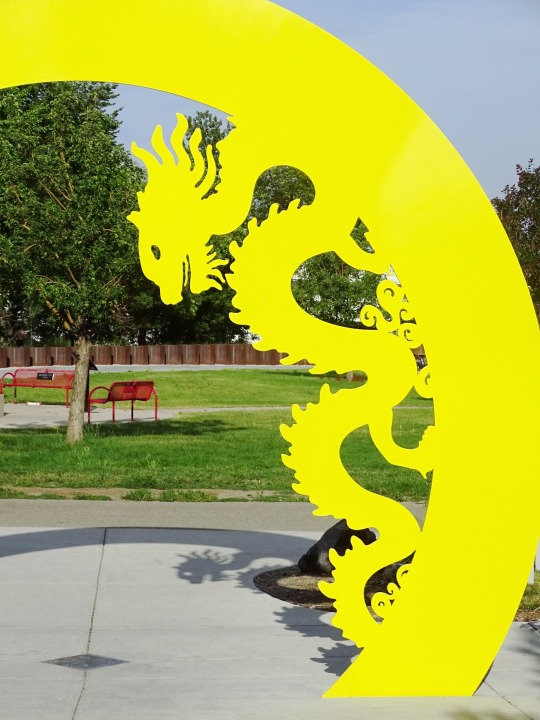
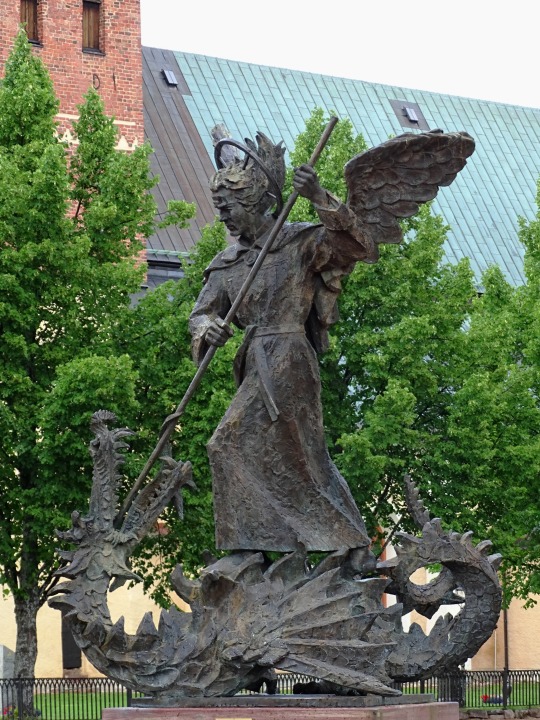
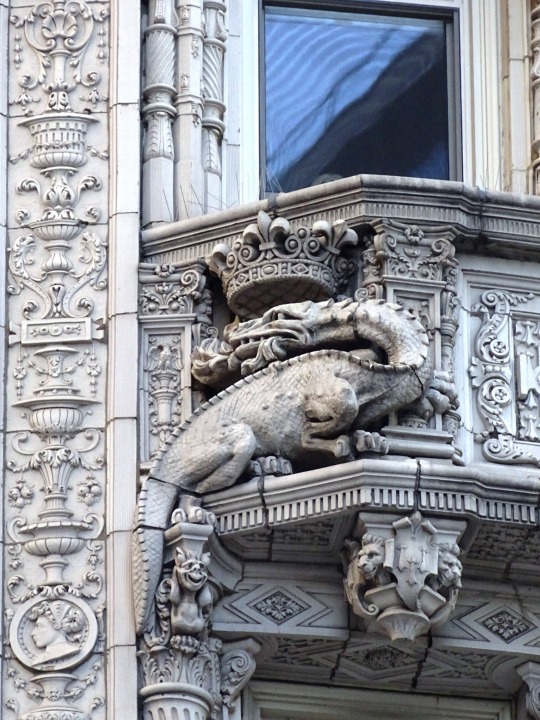
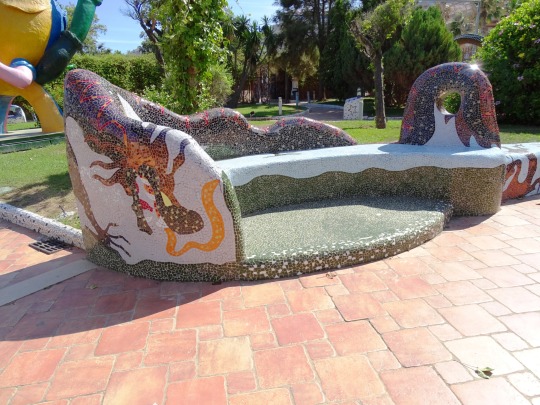
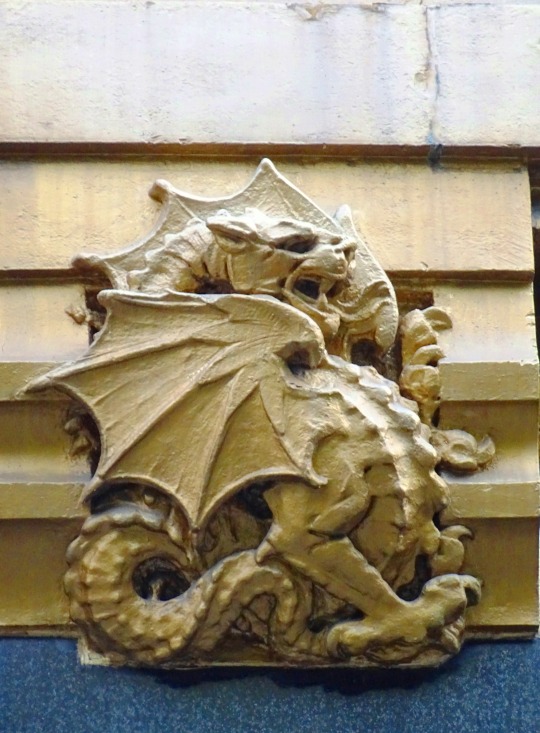
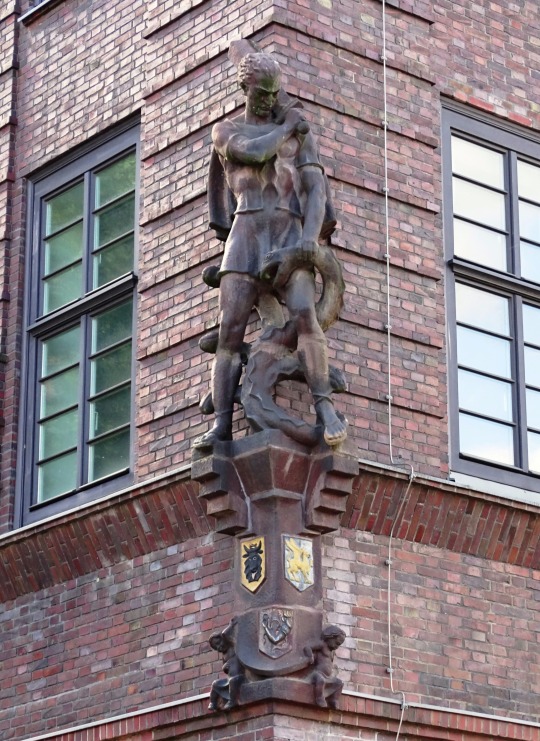
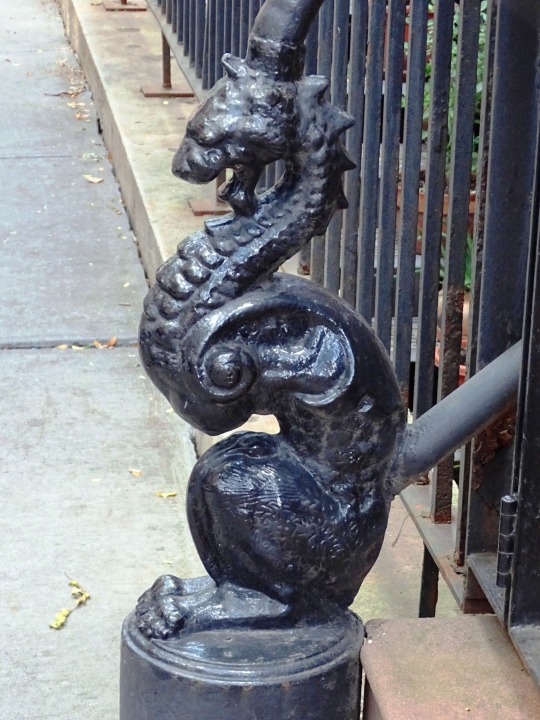
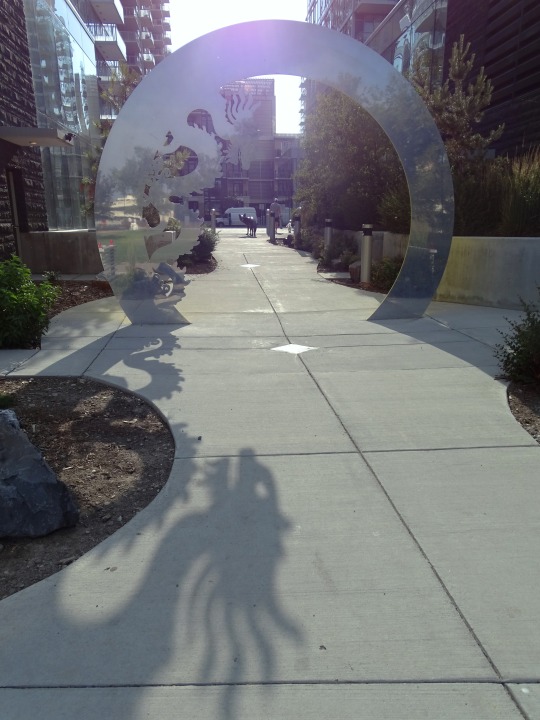
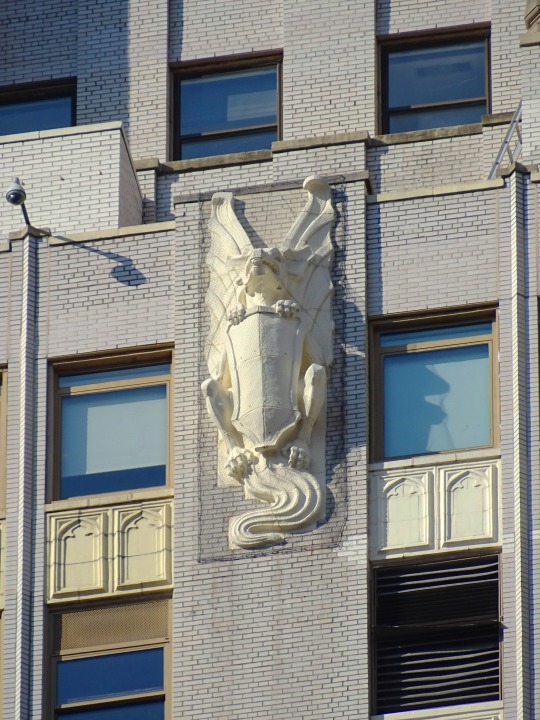
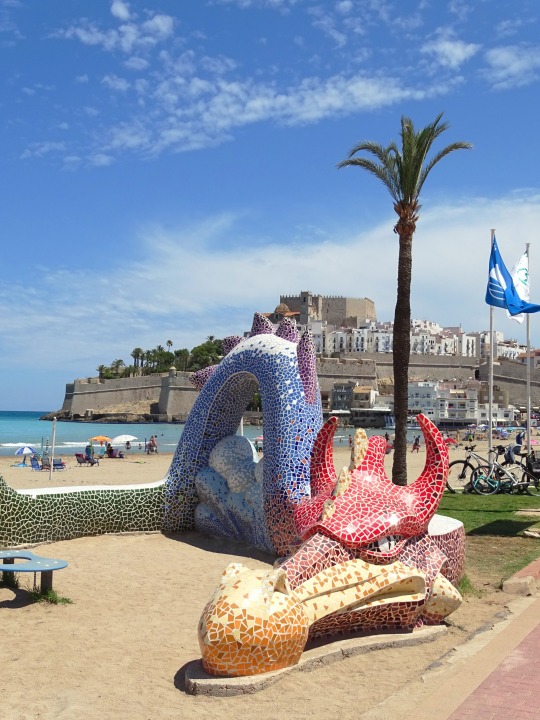
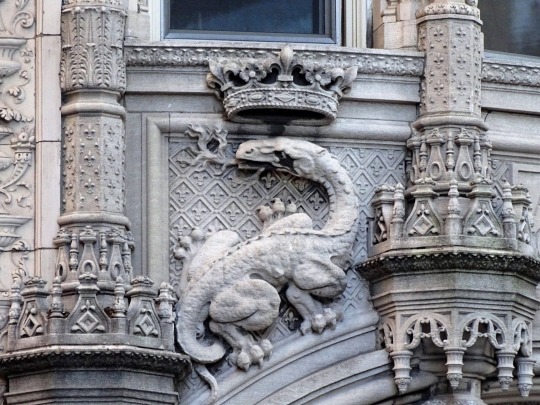
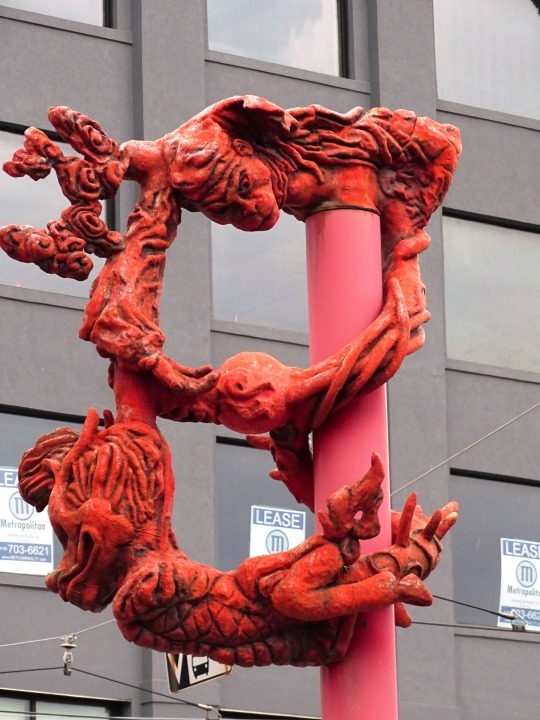
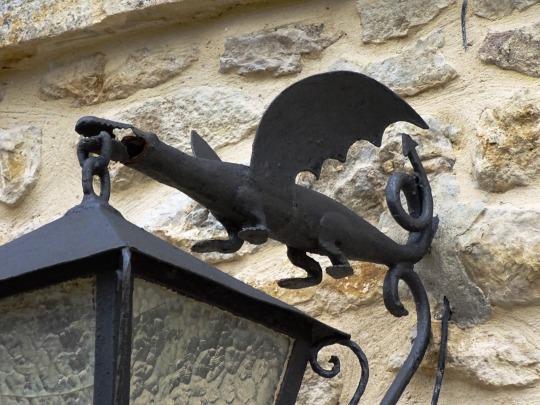
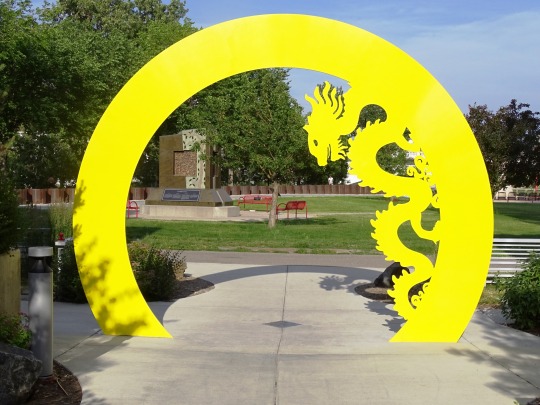
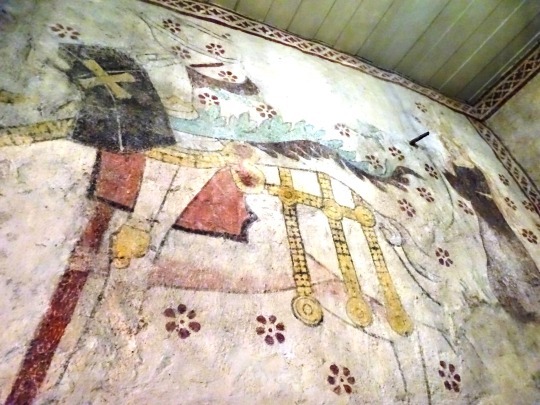
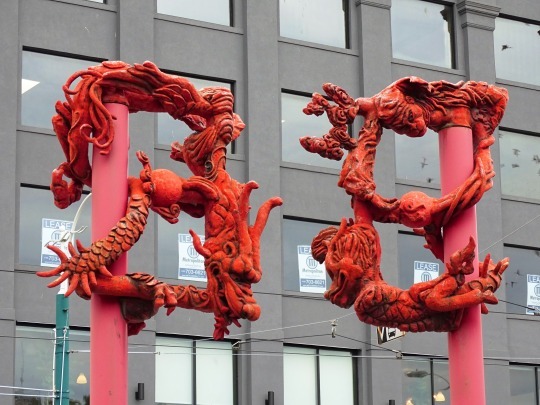
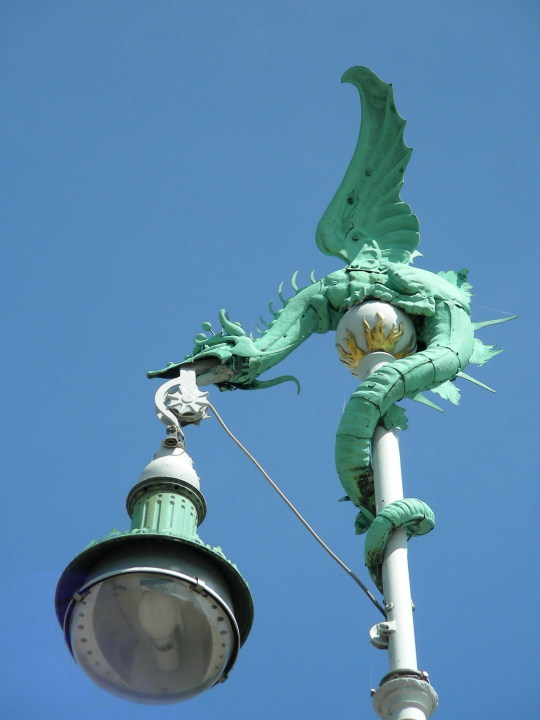
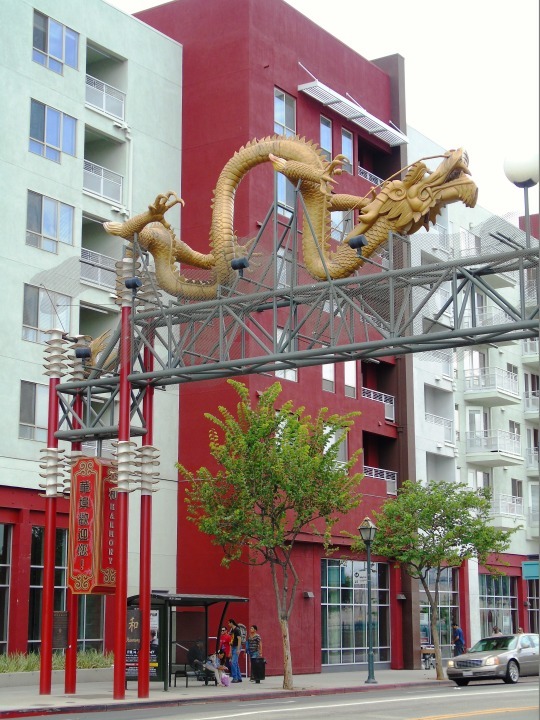
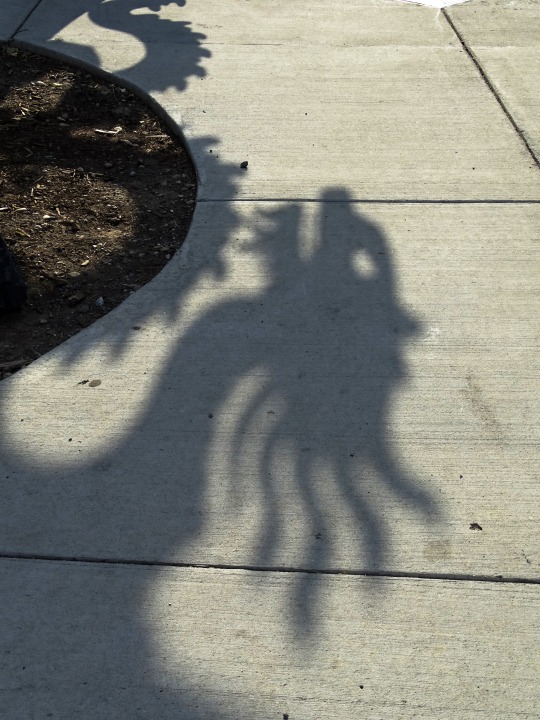
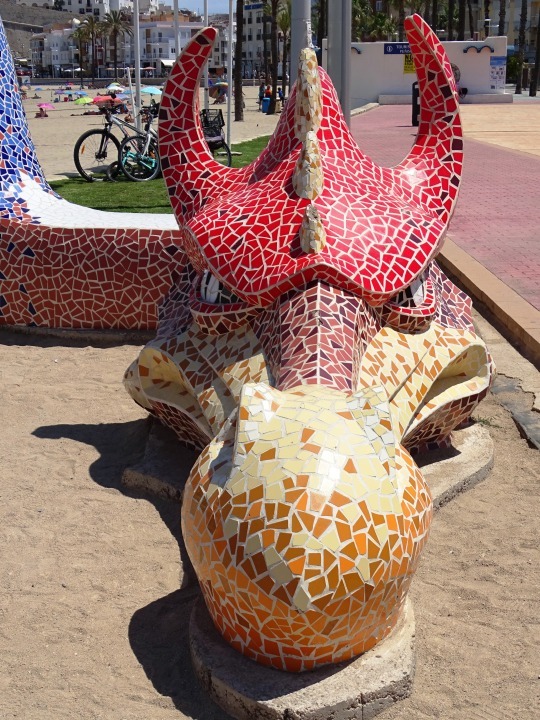
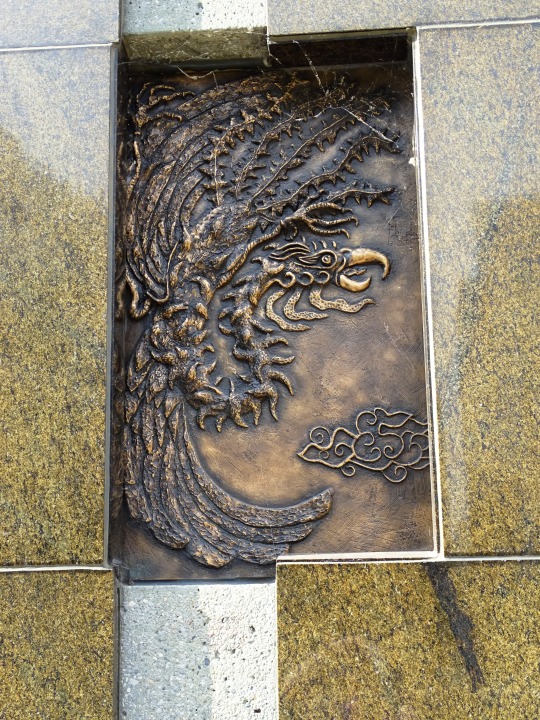
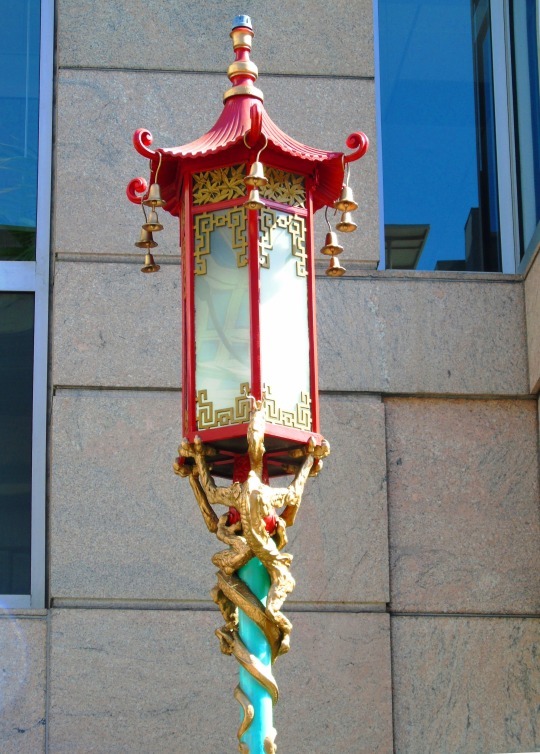
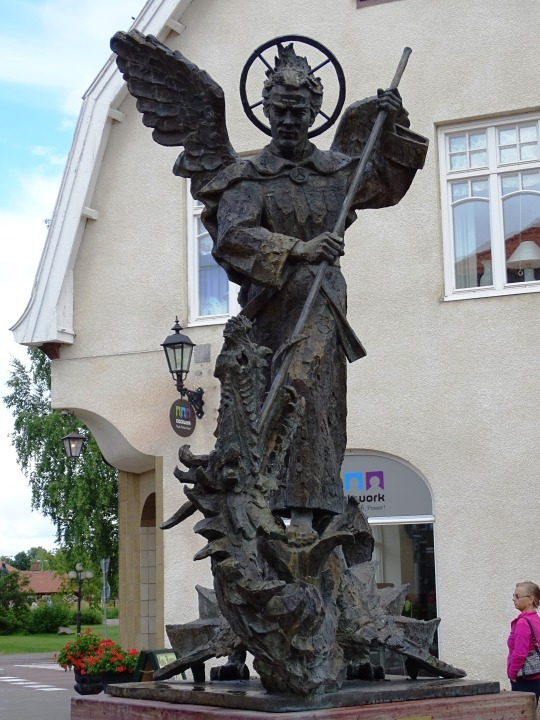
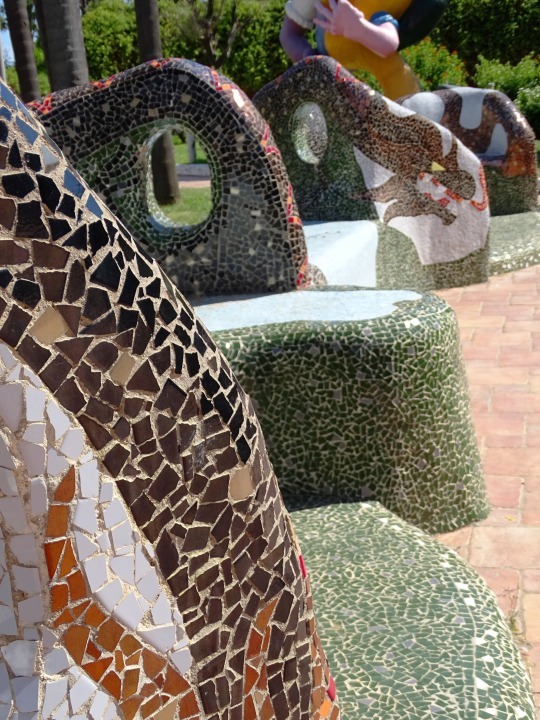
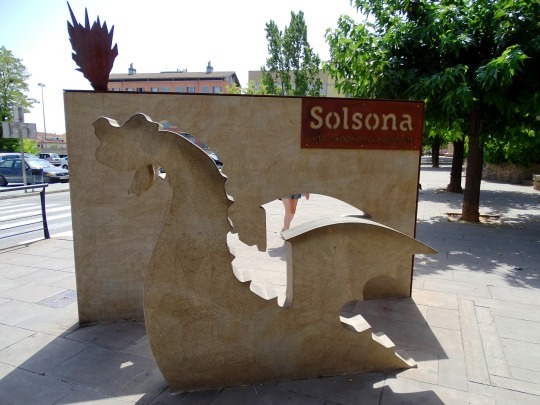
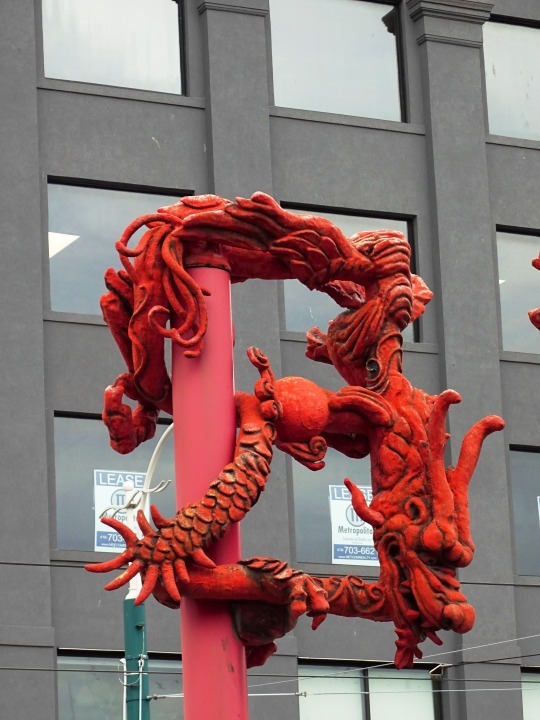
Appreciate A Dragon Day
Dragons, the magical scaly creature born from fire, have existed throughout mythology since the times of the Romans and Egyptians. Dragons, with their celestial ways and otherworldly presence, make our lives a lot more interesting, and never cease to amaze people.
Appreciate a Dragon Day is a day dedicated to learning about dragons and sharing your love for these creatures!
History of Appreciate a Dragon Day
Appreciate a Dragon Day began when Donita K. Paul wanted to celebrate the publishing of her first fantasy novel “Dragonspell”, part of the five-volume series, The DragonKeeper Chronicles.
Dragons have always been popular, existing in the mythology of cultures from all over the world. Dragons inspire us and fill us with fear at the same time. Western dragons have always been depicted as fearsome creatures to either overcome or have a kinship with, while eastern dragons were typically equated with the royalty and heavenly forces, depending on the culture.
Nevertheless, dragons also tend to represent the conquering of the spiritual soul, as they are related to many of the human emotions that block the way to enlightenment. Dragons in modern culture have always been a place of fascination for them, as many authors and filmmakers have helped transform the image of a dragon to something people can admire.
Some of the most famous stories to depict dragons are seen in Tolkien, Ursula, and J.K. Rowling’s novels. In films, movies and TV shows such as How to Raise a Dragon, Game of Thrones, and Eragon have helped shape the way people see dragons and ultimately fall in love with them. Dragons have existed since the earliest parts of history and have appeared in many different forms with many different alignments of good and evil.
The depictions of dragons tend to differ by culture. In ancient times, most societies had an ambivalent view of dragons. Like any other creature, these giant flying serpents had both a good side and a bad one.
In the West, however, attitudes towards dragons changed with the advent of Christianity in the late Roman era. Suddenly, dragons became associated with evil because of their serpentine nature and needed vanquishing. Some people believed that dragons were a real phenomenon and created stories about how great warriors had to go out into the wilderness to defeat them. The tale of St. George and the dragon is likely a direct descendent of this thinking.
When you think about it in more detail, you can understand why people thought dragons were real. Remember, in ancient times, there was no explanation for giant bones. Nobody had a clue what dinosaurs were, or that fossilized bones were millions of years old. For all they knew, these creatures perished recently and could live beyond the horizon. Believing in “dragons” was logical and perhaps necessary to protect yourself.
The old ideas weren’t far off eighteenth- and nineteenth-century discoveries in paleontology. Once the dinosaur age took off, it became clear that there really were giant serpent-like creatures who roamed the Earth millions of years ago, firing the public imagination.
The diversity of dragons is considerable, and one of the main motivations for Appreciate A Dragon Day. The fire-breathing variety is the most famous, but there are others too. Some are like gargoyles found in medieval churches. Others are many-headed hydras that pop out of the ocean. Some even depict them as wyverns, basilisks, and other mythical creatures with loose connections to the real world.
Folklore experts like Carol Rose point out that dragons are essentially “composite creatures.” We tend to think of them as highly-stylized, as depicted in films like The Hobbit. But Rose notes that they can have really unusual features, including elephant trunks.
Ultimately, the idea of dragons interacting with humans fills our mind with awe and inspires us to delight our minds with fancy. Appreciate a Dragon Day asks people to share what their favorite dragon is in popular culture and tell people why they love dragons.
How to Celebrate Appreciate a Dragon Day
When it comes to celebrating Appreciate a Dragon Day, you have a lot of options.
Draw, sketch, or color in pictures of dragons. Watch your favorite dragon-themed movie with friends. Read fantasy novels about dragons, including The DragonKeeper Series. Buy or sew a stuffed dragon for you or a friend you know – it’s all totally kosher!
If you love art, you can print out a dragon coloring page. Or you can attempt to paint a picture of one of these mythical beasts from scratch if you’re feeling brave.
Another popular idea is to use the day to cook a meal fit for a dragon. What, precisely, this entails is anyone’s guess. But heavy charring is clearly an option here. You want something that involves a little fire and passion!
Another thing you can do is learn to write in Dragonese. For those of you who don’t know, this is the language that dragons speak in the film How to Train Your Dragon. The scriptwriters created an entire universe of words, waiting for you to explore them.
You can also indulge yourself in other ways. How about collecting books and movies related to dragons and starting a dragon collection? Or what about creating a dragon mosaic, hosting a puppet show, or doing all kinds of things you can think of related to dragons?
Once you start talking about dragons, you’ll be amazed by how many people love them. Don’t keep Appreciate a Dragon Day to yourself! Share this holiday with your friends and spread your love for dragons!
#Coyote & Moongate by Metz & Chew#Calgary#St. Michael and the Dragon#Appreciate A Dragon Day#AppreciateADragonDay#16 January#Mora#Sweden#New York City#Manhattan#USA#travel#American Radiator Building#Heiliger Georg#St. George#Rostock#Germany#Gateway by Millie Chen#Toronto#Canada#Alwyn Court#San Francisco#Chinatown#Los Angeles#Nordre Toldbod#Copenhagen#Denmark#original photography#vacation#tourist attraction
5 notes
·
View notes
Note
Good morning!! I’m just thinking about your demons again. I ADORE the new additions. 💕
What kind of traits do demons typically find appealing romantically? Like, I know how to woo these folks for the most part, but what passive traits do they find impressive?
Like, I know they’re diverse and no two people like the same thing. Just wondering about “beauty” standards in the circles (not beauty, we know about beauty, I can’t think of the right word). Like, I assume gluttons would appreciate other big eaters, or good cooks, and concubi can appreciate promiscuity of all sorts, or on the flip side, find purity appealing and/or cute.
(I especially would love to know what pride demons typically find attractive.)
[Thenk you! <:7]
That's a little bit vague, I'm not too sure where to go from here, so I'm kind of going to ramble. Not that it's hard to guess. I'll stray from physical descriptions.
There's a trick to this I'll explain at the end.
Wrath demons tend to romanticize hard-headed bulls who never back down from a challenge, as you might imagine. People who stick by their values and exude determination, not easily swayed. People hardened by time and their environment, who rise from the lowest lows to the highest of platforms with grace and respect.
Others may enjoy someone whose fury is subtle yet extremely well calculated, strategized, flawless. Of course, many of them fetishize murderers, violent miscreants of all kinds, serial killers and the aggressively insane;
Greed demons will naturally flock to anyone who's financially "abundant". People who spend carelessly because they earn carelessly. Though many of them will also keep a sharp eye on stingy people who count everything down to the last penny. Sometimes saving a huge chunk of money by executing a series of cheap and clever exploits is enough to have these demons fanning themselves;
Many other greedy demons have fallen for notorious heist authors, prolific robbers, successful scammers, and all sorts of scummy people;
Gluttons do gravitate towards chefs, big eaters and those who own large chains of food, maybe well-known restaurants or even some brands of snacks that they really like. It varies. Those who are always hungry are obviously picked sooner, followed by those with a variety of eating disorders;
Although not as common, some more well-off gluttons pick partners who are extremely thin or otherwise unable to satiate their hunger due to a less genuine drive to "fix" that, or somehow captivate that person by letting them overindulge;
Envy demons tend to hover around those with great social influence. People that fawn attention, people who can start shit in public and get away with it. Celebrities, moles, those who spread their roots everywhere and have way too many connections. A good ability to adapt socially in short spans of time is also extremely coveted in partners;
Likewise, those at the very bottom of the latter, practically foaming at the mouth with their jealousy, ready to perform the most heinous of acts to attain even a crumb of their desires, are also appealing to these demons. The perfect cup-sized storm ready to burst;
Discussed plenty already, concubi are lovers of shameless sensuality and high-libidos. People who control chunks of the porn industry are highly sought after, those who own sex shops, who design the toys they use and abuse, those who write eroticas or administer large kink communities. Where perverts gather so do they, always ready to pick and pluck their favorite heathens;
Still, the fantasy of purity and corruption is very present in many concubi alike, which is what leads them to infiltrate communities of sexually frustrated people and drive them insane with want. Many go a step further and seek to scandalize people of faith, engaging is rancid displays inside sacred locations because the thrill of getting someone so disciplined to give in makes their heads spin with pleasure;
Sloth demons are into soft-spoken people. Those who live very comforted lives with little to get in the way and all the pleasures they could wish for at the tip of their fingers. Those whose hands are uncalloused because they've never had to work for anything in their lives, who might even take it all for granted;
In stark contrast, many will also seek people who are exhausted in all senses of the word. Who can never seem to get enough rest, who work themselves to the bone, frail and weathered and so chewed up inside, the plight for a break present in those heavy bags under their sunken eyes;
Pride demons covet the image of perfection. Whether or not that immaculate presentation is true or not matters none so long as it appears that way outwardly. They seek someone who can elevate them, someone who usually has others trailing after them, people with titles and so much arrogance it might physically hurt to be near them for long periods of time;
Many are also opportunistic however, willing to pick a partner who is down in the slums, dirty and ridden of all dignity. Someone who can't afford to say no to them, can't leave them, will see them as very center of the universe because what would they be without that demon? Nothing. The truest form of adoration for them, total worship, total dependence.
As you might have already guessed, there's contradictions here. The reason why is simple.
Demons of lower rank will usually choose those who are more true and successful representations/reminders of their sin. Because they have a lot to gain from pairing with them.
Demons of higher rank are already after those who desperately need their services, who covet what the sins can offer. Because people in their service and debt make for good lovers, in their eyes.
Mid rankers are a bit of a toss up.
This is not to say that there aren't exceptions to these tendencies, or that they can't exhibit completely opposite tastes, it's the general rule, the norm so to say.
56 notes
·
View notes